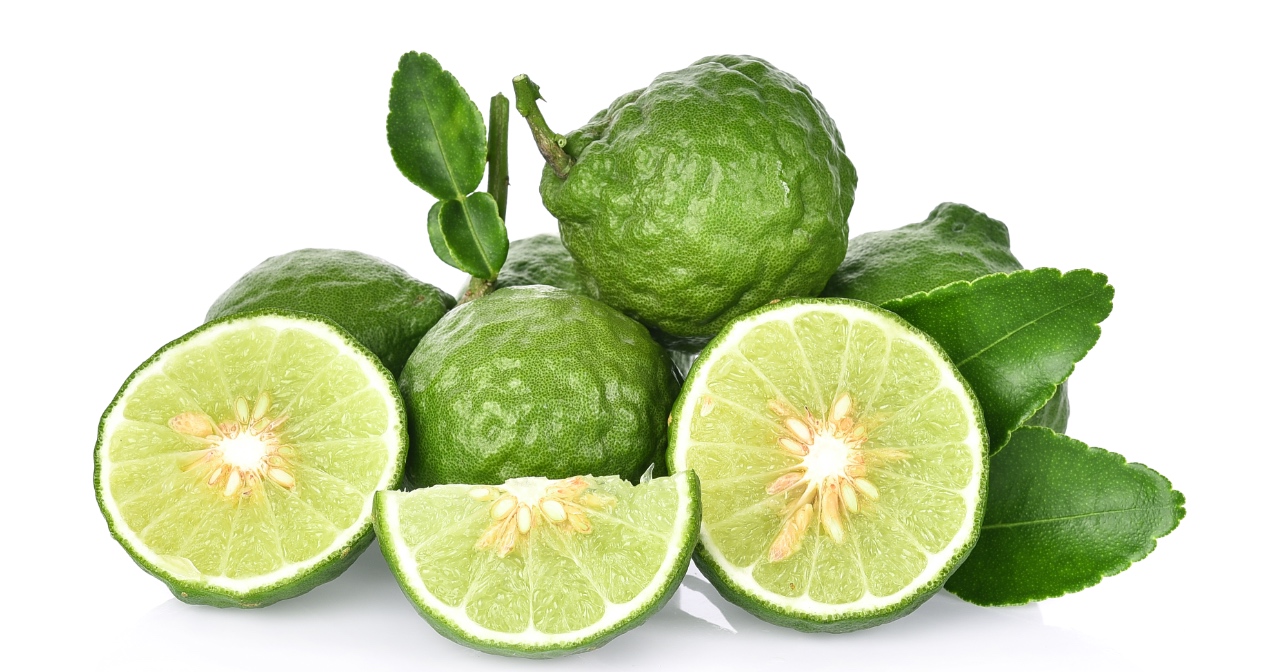Listen on: Apple Podcasts | Spotify
My doctor recently recommended bergamot oil as part of a cardiovascular health protocol (along with nattokinase and a unique blend of vitamin E). Though I was familiar with the positive effects of inhaling the oil, I hadn’t looked too much into the heart health benefits.
I thought, for my own benefit as well as yours, I’d put together a complete guide on bergamot essential oil. I hope you find it helpful.
What is Bergamot Essential Oil?
Bergamot (Citrus bergamia) is a close cousin to the orange, though it is not sweet. Native to Italy, some believe it’s a hybrid of a lemon or a lime and an orange. It may also originate from Greece, the Canary Islands, or Antilles.
To extract the essential oil, bergamot is either cold-pressed or vacuum distilled.
Bergamot is a staple in the perfume industry, as the citrus scent complements other scents and fixes and amplifies the combination. It’s also found in essential oil products, desserts, and tea. If you’ve ever sipped Earl Grey Tea, you’ve tasted bergamot.
The juice may also offer health benefits as it’s been shown to be anti-inflammatory and has anti-cancer properties.
The essential oil contains high levels of limonene, linalool, and linalyl acetate. It also contains γ-terpinene, and β-pinene.
Bergamot essential oil is one of the main basic constituents for the manufacture of perfumes, due to its ability to fix the aromatic bouquet of aromas and harmonize all of the essences, enhancing the fragrance. BEO is also used by the pharmaceutical industry, both to absorb the unpleasant smells of medicinal products and for its antiseptic and antibacterial properties. Finally, BEO is used in the food and confectionery industries as a flavoring.
Navarra M, et al.
Health Benefits of Bergamot Essential Oil
Bergamot essential oil (BEO) has a long history of use in traditional or folk medicine. Many of such benefits have yet to be proven through clinical research. However, there’s clear support for bergamot’s effect on mood and stress, and growing research on its impact on heart health.
Stress Reduction & Improved Mood
Researchers have studied the stress-relieving effects of bergamot in healthy adults and those with mental or physical dysfunction or disease.
For example:
Listening to soft music and inhaling Citrus bergamia essential oil was found to be an effective method of relaxation, as indicated by a shift of the autonomic balance toward parasympathetic activity in young healthy individuals.
Peng SM, et al.
Some studies included only bergamot essential oil when testing its impact on stress and anxiety, while others included bergamot with a blend of other oils like lavender, ylang ylang, frankincense, and cedarwood.
Most studies showed that inhalation of bergamot alone or as part of a blend relieved stress and lowered feelings of anxiety. Perhaps, diffusing bergamot could help with symptoms of irritable male syndrome too.
Heart Health
Elevated blood pressure can lead to blood vessel damage, so natural methods of controlling blood pressure may support long-term cardiovascular health.
Because inhalation of BEO stimulates the parasympathetic nervous system, it helps lower blood pressure and heart rate, which may reduce the chance or rate of developing heart disease.
In addition, various bergamot extracts have positive effects on LDL and HDL cholesterol. However, the strongest evidence seems to come from extracts of the juice and not the essential oil. It’s possible a compound found in both offers benefits, but more research is needed. That said, my doctor did recommend bergamot oil for my cardiovascular health protocol, so he must have seen good results with previous patients to justify the recommendation.
Bergavit, a supplement designed with bergamot juice, not essential oil, also shows promising cardiovascular health benefits. In a clinical study, the extract significantly lowered LDL cholesterol in those with high cholesterol levels. Those at the highest quartile experienced a 29% reduction in LDL levels.
In another study, bergamot extract supplementation lowered LDL and raised HDL cholesterol and lowered triglycerides and blood sugar.
Combats Infections
While bergamot has a long history of use in folk or traditional medicine to combat infections, compelling clinical research does not exist.
In vitro research shows that BEO has antibacterial and antifungal properties against a number of pathogens. That does not discount the effectiveness of BEO. It simply means no one has tested it in a clinical setting.
Might it reduce infections on skin wounds? Could it reduce internal infections? If there wasn’t evidence it worked, it wouldn’t have survived as a traditional medicine remedy, yet there’s no compelling clinical research to back it up. There are other more potent oils in this regard as well, such as clove or frankincense.
Other Potential Benefits
Researchers injected BEO into animals to tests its pain-relieving effects. While the results were positive, the delivery method is impractical for everyday use. Though it could be considered an analgesic, topical or internal use probably won’t affect pain.
In addition to its potential pain-relieving effects, people have traditionally used bergamot for fever reduction, sore throats, parasites, and wound healing.
According to a study published in 2020, researchers following a standard animal process for testing treatments on acne found that consumption of bergamot essential oil significantly reduced acne.
While there are probably more effective natural substances for these issues, it would hurt to give bergamot a try.
Read also: How to Use Critical Thinking With Essential Oils.
Precautions & Contraindications
Some research shows bergamot may be used effectively alongside statins, but patients should always consult with their doctors first.
When used topically, people should apply BEO with a carrier oil to slow absorption and reduce skin reactions that can happen with citrus oils.
Also, some compounds in the oil are phototoxic. If you apply bergamot essential oil to the skin and then expose it to UV rays, it may cause hyperpigmentation or skin irritation.
A single case report in The Lancet detailed a 44-year-old man who experienced severe muscle cramps. The cramps were believed to be a result of his Earl Grey Tea consumption, as bergamot contains a compound that my reduce potassium levels. However, the gentleman drank a gallon a day for 25 years, which led to his potassium depletion.
Like any natural product or even food, some people may experience other rare side effects, though bergamot has a strong safety record.
Summary
Based on the available research, bergamot essential oil has a clear, positive impact on mood and feelings of stress while reducing sympathetic nervous system effects like elevated heart rate and blood pressure.
Bergamot juice extract shows strong support for improving blood lipid levels, while the oil might do so.
As for other effects, such as its impact on bacteria, fungus, pain and inflammation, bergamot might have a positive impact, but human in vivo studies are needed.
In the present study BEO was inhaled together with water vapor through the nose into the alveoli, inducing mental and physical effects by inhalation alone. It can therefore be used as a relatively simple form of stress reduction, which might be useful in our modern society plagued by chronic stress.
Watanabe E, et al.
As for me, I’ll continue to take it alongside my nattokinase and vitamin E (and Foundational Five) to support my heart.
References
“BERGAVITTM FG – BIONAP.” BERGAVITTM, https://bergavit.bionap.com/. Accessed 23 Mar. 2021.
Comparison of the Volatile Constituents in Cold-Pressed Bergamot Oil and a Volatile Oil Isolated by Vacuum Distillation | Journal of Agricultural and Food Chemistry. https://pubs.acs.org/doi/10.1021/jf070997q. Accessed 22 Mar. 2021.
Finsterer, Josef. “Earl Grey Tea Intoxication.” The Lancet, vol. 359, no. 9316, Elsevier, Apr. 2002, p. 1484. www.thelancet.com, doi:10.1016/S0140-6736(02)08436-2.
Han, Xuesheng, et al. “Bergamot (Citrus Bergamia) Essential Oil Inhalation Improves Positive Feelings in the Waiting Room of a Mental Health Treatment Center: A Pilot Study.” Phytotherapy Research, vol. 31, no. 5, May 2017, pp. 812–16. PubMed Central, doi:10.1002/ptr.5806.
“Health Benefits of Bergamot.” WebMD, https://www.webmd.com/diet/health-benefits-bergamot. Accessed 23 Mar. 2021.
Mollace, Vincenzo, et al. “Hypolipemic and Hypoglycaemic Activity of Bergamot Polyphenols: From Animal Models to Human Studies.” Fitoterapia, vol. 82, no. 3, Apr. 2011, pp. 309–16. PubMed, doi:10.1016/j.fitote.2010.10.014.
Multidimensional Capillary GC−GC for the Analysis of Complex Samples. 5. Enantiomeric Distribution of Monoterpene Hydrocarbons, Monoterpene Alcohols, and Linalyl Acetate of Bergamot (Citrus Bergamia Risso et Poiteau) Oils | Journal of Agricultural and Food Chemistry. https://pubs.acs.org/doi/10.1021/jf980228u. Accessed 22 Mar. 2021.
Navarra, Michele, et al. “Citrus Bergamia Essential Oil: From Basic Research to Clinical Application.” Frontiers in Pharmacology, vol. 6, Frontiers, 2015. Frontiers, doi:10.3389/fphar.2015.00036.
Peng, Shu-Ming, et al. “Effects of Music and Essential Oil Inhalation on Cardiac Autonomic Balance in Healthy Individuals.” The Journal of Alternative and Complementary Medicine, vol. 15, no. 1, Mary Ann Liebert, Inc., publishers, Jan. 2009, pp. 53–57. liebertpub.com (Atypon), doi:10.1089/acm.2008.0243.
Role of D-Limonene in Autophagy Induced by Bergamot Essential Oil in SH-SY5Y Neuroblastoma Cells. https://journals.plos.org/plosone/article?id=10.1371/journal.pone.0113682. Accessed 23 Mar. 2021.
Sakurada, Tsukasa, Hikari Kuwahata, et al. “Chapter 18 Intraplantar Injection Of Bergamot Essential Oil Into The Mouse Hindpaw: Effects On Capsaicin‐Induced Nociceptive Behaviors.” International Review of Neurobiology, vol. 85, Academic Press, 2009, pp. 237–48. ScienceDirect, doi:10.1016/S0074-7742(09)85018-6.
Sakurada, Tsukasa, Hirokazu Mizoguchi, et al. “Intraplantar Injection of Bergamot Essential Oil Induces Peripheral Antinociception Mediated by Opioid Mechanism.” Pharmacology Biochemistry and Behavior, vol. 97, no. 3, Jan. 2011, pp. 436–43. ScienceDirect, doi:10.1016/j.pbb.2010.09.020.
Sun, Peng, et al. “Essential Oil and Juice from Bergamot and Sweet Orange Improve Acne Vulgaris Caused by Excessive Androgen Secretion.” Mediators of Inflammation, vol. 2020, Oct. 2020. PubMed Central, doi:10.1155/2020/8868107.
Toth, Peter P., et al. “Bergamot Reduces Plasma Lipids, Atherogenic Small Dense LDL, and Subclinical Atherosclerosis in Subjects with Moderate Hypercholesterolemia: A 6 Months Prospective Study.” Frontiers in Pharmacology, vol. 6, Jan. 2016. PubMed Central, doi:10.3389/fphar.2015.00299.
Watanabe, Eri, et al. “Effects of Bergamot ( Citrus Bergamia (Risso) Wright & Arn.) Essential Oil Aromatherapy on Mood States, Parasympathetic Nervous System Activity, and Salivary Cortisol Levels in 41 Healthy Females.” Forschende Komplementarmedizin (2006), vol. 22, no. 1, 2015, pp. 43–49. PubMed, doi:10.1159/000380989.



